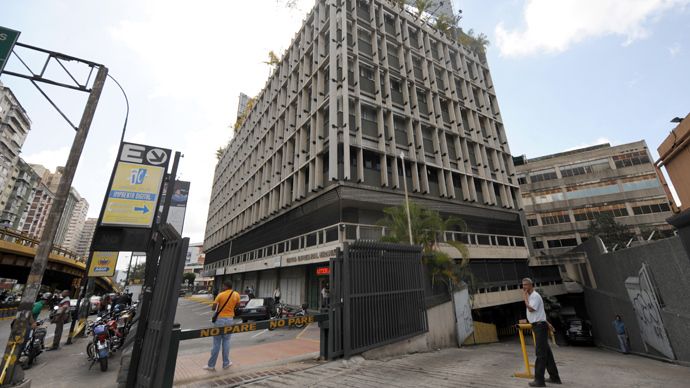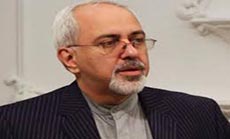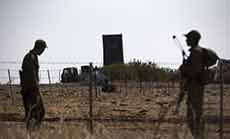
July War Phantom Still Stalks “Israel”, Its Military

The Chief of Staff of the Air Force: Hizbullah, Too, Has Derived Morals from July 2006 War
Source: "Bemehney Military Magazine - By Yourdon Tsure"
Five years after the War, the Chief of Staff of the air force, Brigadier General Nimrod Shuffer speaks about everything, starting with the operations in common with the land forces until Hizbullah's intensification; he clarifies: We know how confrontation is.
In spite of five years of relative quietness in the northern arena, the Chief of Staff of the air forces, Brigadier General Nimrod Shuffer hasn't removed his finger off the trigger or put his gun aside. As soon as the Second Lebanon War ended, during which "the Blue Arms" were a main partner, an elongated process of deriving morals began, reflecting on the level of flights and even units.
Since the air force has overcome a wide-scaled operation, too, in the Gaza Strip, Brigadier General Shuffer today confides in the aerial capabilities of the "Israeli" Military more than ever. Yet, he leaves no space for exclamation concerning the next round: "I'm convinced that there is going to be apprehension," adding, "but I know we can face that. I believe that what we are preparing against the counter party is much stronger and more important than what the counter party is preparing against us."
Brigadier General Shuffer believes that "it is true that the "Israeli" Military has derived morals from the July War in 2006; however, the Military isn't the only one to have done so, for Hizbullah has learned from the War, too." He reiterates that "we see this through the good way Hizbullah defends its properties and members. Hizbullah derives morals, makes discussions, and improves. So it is going to be very hard for us to locate Hizbullah's position as respects intelligence, and, thus, our targets, too.
In accordance with what Brigadier General Shuffer says, the enemy that "Israel" faces is far from being "simple".
In his opinion, the first and most prominent enemy the Chief of Staff remembers is the curved-path arms. "The arsenal of land-land rocket shells and land-land missiles, with which the "Israeli" Inner Frontline was bombarded during the Second Lebanon War, has undergone an improvement process concerning the amount and reachable range," he clarifies.
He says, "The threat of receiving a coup has become the aerial threat of the counter party. With respect to us, getting prepared includes a lot of learning and intelligence inquiries, in addition to joining new work styles that we've improved after the War."
"Our preparedness includes arms, the majority of which is considered as new in contrast with its lack the previous time. And I know that the air forces are going to perform their role well in any scenario" Shuffer added.
The advanced anti-aircraft missiles that Hizbullah has owned since the July War in 2006 until today have made the air forces execute appropriate processes regarding the combative creed and their defensive means so as to confront these missiles. The processes, which are intriguing, treacherous, and deceiving, are only a part of the reprioritized combative doctrine that seeks diminishing the danger of casualties as much as possible." Then, Shuffer clarifies this, saying, "Upon a firm base, we presume that Hizbullah has intensified in regard to this domain."
__________________________________________________
Five Years after the Second Lebanon War... An Emergency Plan to Defend the "Israeli" Airspace
Source: "The "Israeli" Military Radio"
The "Israeli" Military Radio has interviewed the chief of the Civil Frontline Research Program of the Jewish Institute for National Security Affairs (JINSA), Deputy Brigadier General Maïr Alran, whereby the interview was focused on the national "Israeli" plan to defend the "Israeli" airspace. Alran says, "First of all, it should be mentioned that "Israel" has been renovating a missile-confrontation plan for many years, and many elements of it are present on earth.
Also, many other elements, which are of the same importance, are being developed and prepared. As far as I know, what is actually on the agenda now is primarily funding this plan, which is extremely controversial, for it points out, or it is supposed to point out the agendas of priorities in context of an integrated concept regarding how "the State of Israel" is going to handle those threats. In fact, here lies the fundamental issue that raises the most dangerous conflicts. So far, "the State of Israel" has basically and traditionally adopted a deterrent, offensive concept as respects everything related to the threats issue that we know: the non-axial war, the threat for the Inner Frontline, and others.
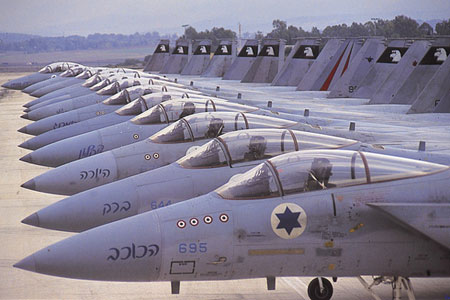
And we have seen this during the Second Lebanon War and Operation Cast Lead (The Gaza War). Besides, many conspicuous "Israeli" militants - not outsiders - talk a lot that the right and favorable solution is the offensive, deterrent one. Yet, there are others - whom I support by the way - who believe that in spite of the great respect and importance of the deterrent and offensive dimensions, there exists the need for another important dimension; at the moment, I can add the defensive dimension, which has been ignored for long years.
As a matter of fact, throughout the recent years, awareness and knowledge have been developing upon the developed awareness and the noticeable public pressure on the "government" and policies makers, also upon the readiness to hire the required investments in what is generally called defense and particularly effective defense.
All that we're talking about right now is in the article that I told "Alex Fishman" about; it is a detailed and an important article that actually talks about the three classes known for positive defense. Practically, the decision of the actual heading towards the positive defense element as an important element has been made - at least in the security institution, and I think that in general it is possible to talk through the "Israeli" side of the "government".
However, it isn't obvious to what extent they're going to invest in this element, and there are still questions about it. At least I'm one of the people who wish to pay tribute to this progress. Well, maybe it happened late, but it is good it has happened, and it will require much longer years than the expectations of "Alex Fishman", who says that this arsenal will have been completed by 2015. It's going to take a lot of years, money, and efforts.
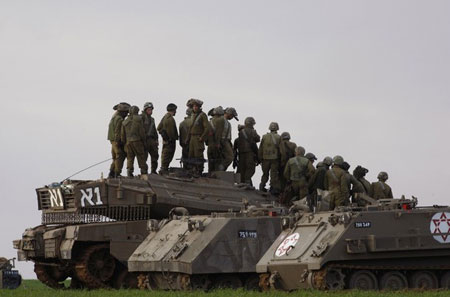
I hope that our deterrence reinforces its place throughout all of these years so that we reach a situation when we get a defensive, positive, appropriate, and perfect arsenal that can defend our military and civil targets.
Generally and traditionally, the air force reserves the defense element even though defending the airspace of the "state" and whatsoever exists. But I also personalize that the air force has extremely important beginnings of change and adaptation with the changing reality and developing threats. The air force itself has clear defensive interest, whereby it must defend the bases and constructions it owns. So I personalize that the air force is witnessing a change, and it is true that during the current struggle for budgets, the air force is offered obvious priorities for its offensive arm.
This is why I have said before that the budgetary question hasn't been resolved so far, and the problem isn't with the air force rather than the entire Military. The whole Military Institution has generally been established upon requests, expectations, or needs of the air force. Hereupon, first I agree with you that the air force constitutes an obstacle, and I see very encouraging signs that the air force has begun to understand the issue. Regard the adoption of the air force, even on the disciplinary level, whereby they have set up a new arsenal or a new directorate of the air force, called the Civil Defense Directorate, which includes all appropriate elements as investments, organization, preparations, and the development of a theory.
Thus, the air force, which undoubtedly has a basic concept, shows an important flexibility. They say that justice is achieved slowly, but this leads you to the right way.
Despite what I've just said, the problem of time is open because we do not know at all when we'll need the positive defense arsenal we're talking about as we have absolutely been unable to talk about the negative defense arsenal or any other defensive arsenals related to everything that has to do with developing the social immunity of the "Israeli" people.
__________________________________________________
Benny Gants Discusses the "Israeli" Military's Multi-year Plan
Source: ""Israel" Defense Website"
The members of the General Staff Club meet in Tsirivin Base for two extra days to reflect on the fateful, multi-year plan, "Halamish"(Literally "the Firestone").
The Staff workshop for renovating a new, long-term plan for the "Israeli" Military worked in high speed: On Sunday, all brigades of the General Command met for two extra days of discussions before renovating a new priority pyramid for specializing the "Israeli" Military's sources. The meetings took place in the Drill Base of the Armament Arm in Tsirivin.
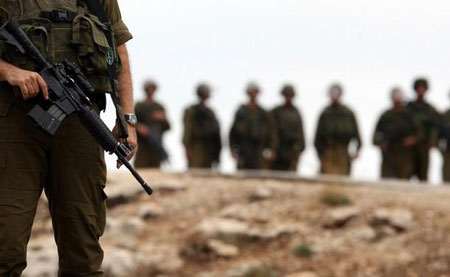
In an exceptional step, the Chief of the General Staff Committee has decided to invite the main arms officers, team commanders, presidents of arms committees, commands, and the club of the high-ranking air force and maritime commanders.
It is to be mentioned that the new pentagon plan the "Israeli" Military is discussing currently is supposed to be applied starting with 2012 until 2016. The plan is called "Halamish", and it is considered as one of the fateful plans in the history of building the "Israeli" Military's power. Also, the plan will provide continuation for the previous pentagon plan called "Teven", and it will be in effect during the service years of Lieutenant General Gabi Ashkenazi as Chief of the General Staff Committee.
Discussions on the Staff workshop commenced in June, and they are supposed to be finished by mid August. Afterwards, the Military Command is going to have several extra meetings until the end of August.
Then, the Chief of the General Staff Committee, Lieutenant General Benny Gantz, in coordination with the Defense Minister, Ehud Barak, is going to approve of its decisions upon the intensification of the "Israeli" Military's purposes in the context of the budget specified for the Military Institution.
